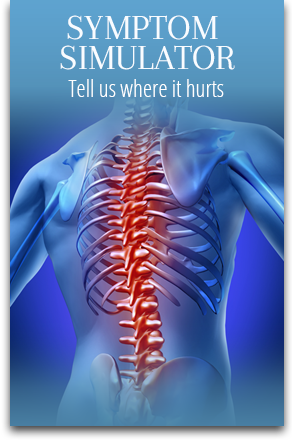Tingling pain in your neck and shoulder?
 Q: I’ve recently had open heart surgery. I’m feeling an ache and tingling in my right neck and shoulder, but it’s been decided that my heart condition isn’t related to the pain. I’ve also had an MRI of my neck, and it didn’t show anything of concern. Could something else be causing this sensation that wouldn’t have shown up on those exams?
Q: I’ve recently had open heart surgery. I’m feeling an ache and tingling in my right neck and shoulder, but it’s been decided that my heart condition isn’t related to the pain. I’ve also had an MRI of my neck, and it didn’t show anything of concern. Could something else be causing this sensation that wouldn’t have shown up on those exams?
A: Without knowing exactly what examination procedures were performed with regard to the heart problem, the answer is likely “yes.” The MRI is typically taken when a herniated disc is suspected. The injured disc would be expected to put pressure on the nerve that passes through the neck and shoulder, causing sensations similar to yours. Pain in the right neck, shoulder and jaw are often characteristic of cardiac arrest, so evaluation of your heart condition would also be appropriate with regard to your symptoms.
A condition that is often overlooked, and which I see less frequently in the clinic than disc herniations, is what is called thoracic outlet syndrome (TOS). I will not attempt to diagnose your condition in this column, but I will briefly describe this syndrome in a way that I hope is helpful to you. This condition gets its name from a particular region of the body known as the thoracic outlet. The thorax in a human being is essentially the region defined by the ribs, including the heart and lungs, as well as the twelve segments of the spine that bear the ribs. The so-called outlet of the thorax is found at the top of the rib cage. A number of important nerves, as well as a major artery (subclavian) and vein, pass through a small area in this region that can be constricted by several structures.
Symptoms will vary depending on which vessel or nerve is compressed or irritated by this constriction. If the nerves are involved, symptoms will typically include numbness and achiness in the ring finger and pinky. Numbness and weakness will be more generalized (maybe all the fingers) in the arm if the artery is compressed. If the vein is the problem, you will likely notice swelling in the hand. In most cases, raising the affected arm above the head for any appreciable amount of time becomes increasingly difficult.
As I had mentioned, several structures tend to constrict the thoracic outlet. Two muscles known as are common culprits. These muscles attach at the vertebrae in the neck and at the upper ribs. They help us breathe and also bend the neck forward. These may become tight or unusually enlarged and put pressure on the nerves and vessels. A broken collarbone may not have healed correctly, and the resulting deformity may also apply such pressure. Occasionally a person may have been born with a small rib in his or her neck (where ribs are not typical) that can conceivably interfere with the passing nerves, artery or vein. While other structures may cause TOS, the results are largely the same. Accepting what has already been ruled out, a fairly straightforward physical exam focusing on this region should suffice to establish the diagnosis of TOS, and then appropriate imaging can be obtained (if needed) to determine the specific cause. Physical therapy procedures are often successful in alleviating much of the symptoms.







